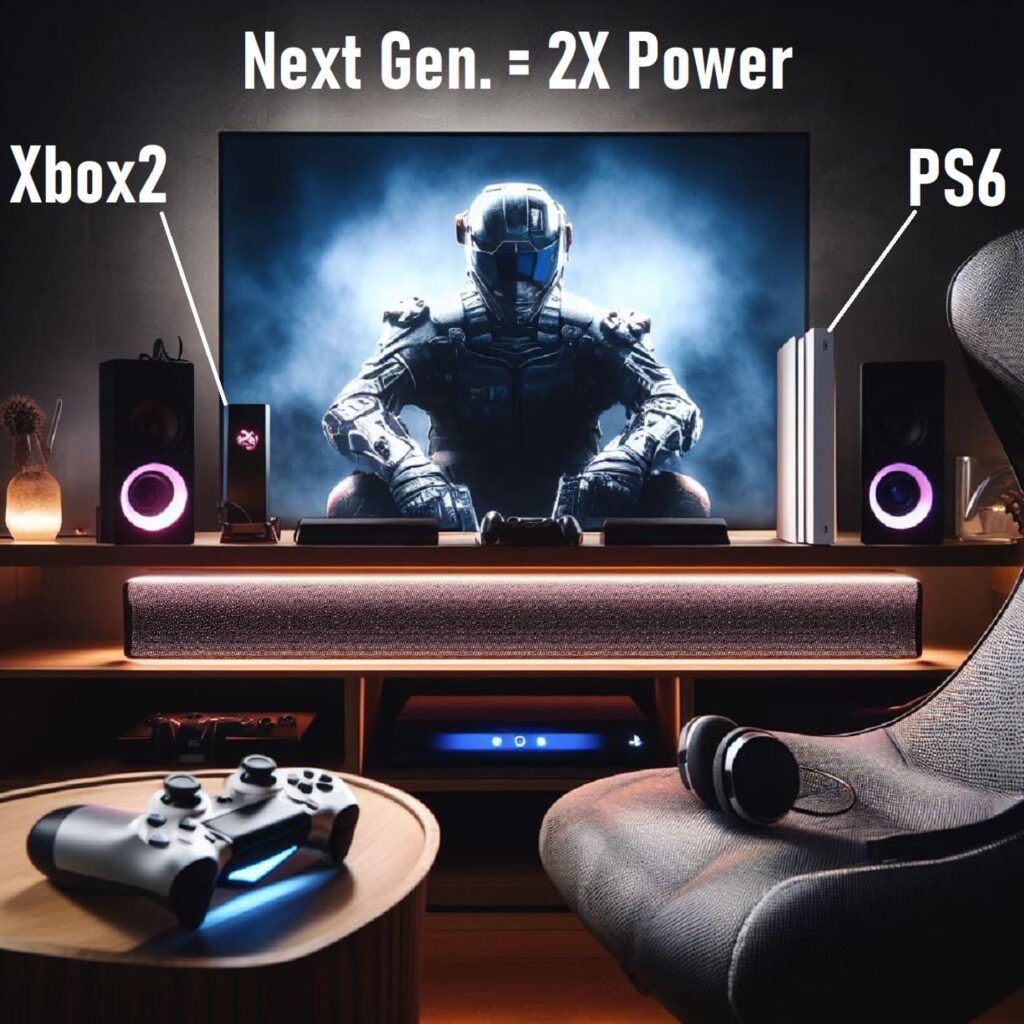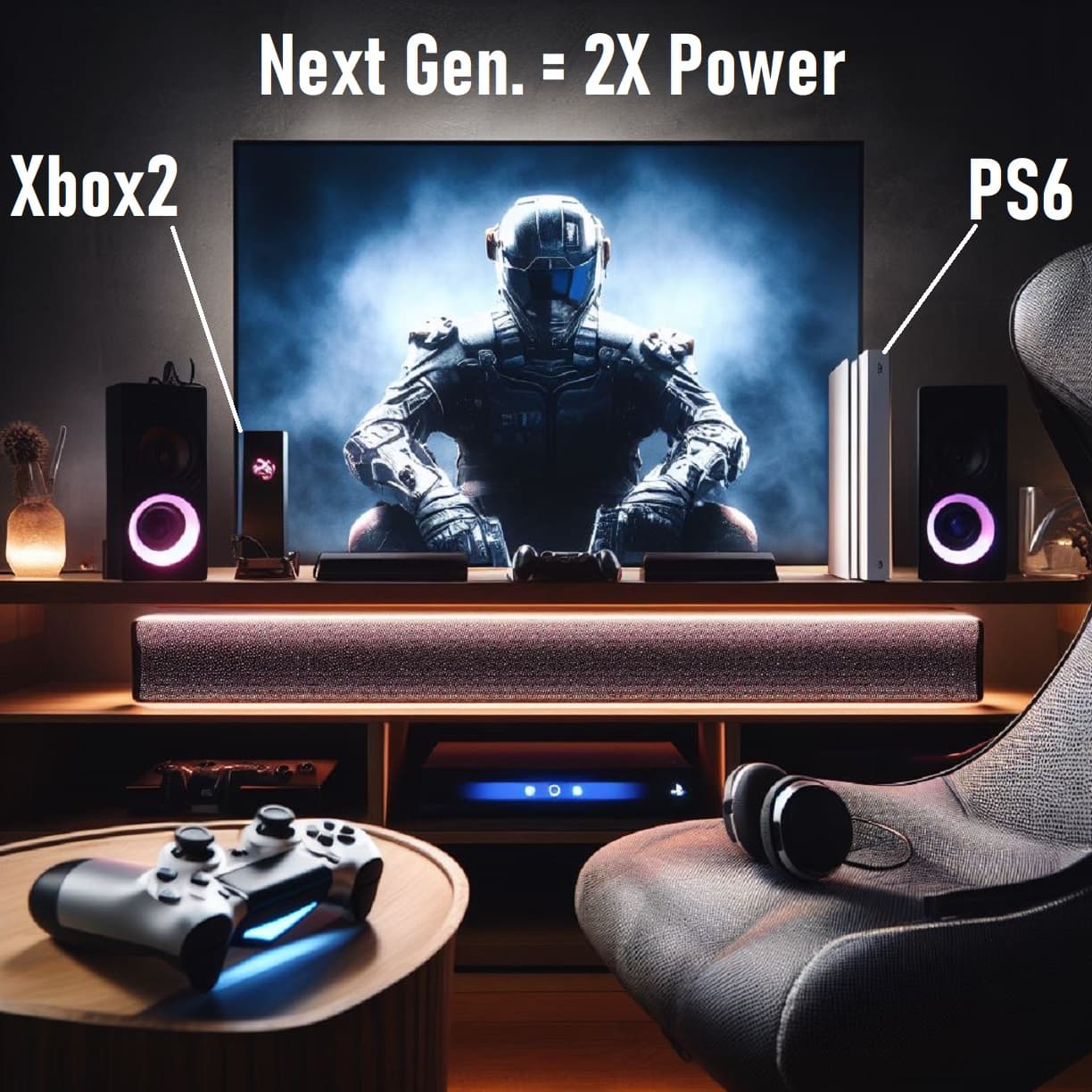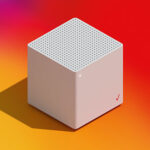The gaming industry is in a state of constant evolution, with new hardware and technologies emerging regularly. In this article, we’ll delve into the potential future of gaming consoles, focusing on the rumored PlayStation 6 (PS6) and the next-generation Xbox. Keep in mind that while these details are based on leaks and insider information, they are not confirmed and should be taken with a grain of salt. Let’s explore the possible advancements and strategies of these two gaming giants.
Xbox Next-Gen: A Sneak Peek into Microsoft’s Plans
The next generation of Xbox consoles is a hot topic among gaming enthusiasts, with rumors and leaks circulating online. It’s essential to note that many of these details are speculative and subject to change. However, they provide us with exciting insights into Microsoft’s potential strategies.
Hardware Choices: Arm vs. x86 CPUs
One significant aspect of Xbox’s next-gen development is the choice between ARM-based CPUs and x86 designs. ARM processors are known for their power efficiency, making them ideal for mobile devices and laptops. On the other hand, x86 processors, such as those from AMD and Intel, have been the backbone of gaming PCs and consoles for years.
| Criteria | ARM-Based CPU | x86-Based CPU |
|---|---|---|
| Power Efficiency | Excellent power efficiency | Power consumption may be higher |
| Compatibility | May require emulation for games | Native compatibility with x86 |
| Performance | Potentially lower performance | Proven performance in gaming |
Microsoft is likely considering these factors carefully, as the choice between ARM and x86 could have a significant impact on the console’s capabilities and game library.
Big vs. Little Cores: Striking the Right Balance
Another critical decision revolves around the configuration of big and little CPU cores. Big cores offer higher performance, while little cores are designed for lower power consumption. This configuration is common in mobile devices and some laptops.
| Criteria | Big Cores | Little Cores |
|---|---|---|
| Performance | Higher performance | Lower performance |
| Power Efficiency | May consume more power | Excellent power efficiency |
| Compatibility | Compatible with x86 instruction set | Compatible with x86 instruction set |
Microsoft’s challenge is to strike the right balance between these two core types, ensuring optimal performance and power efficiency for gaming.
Machine Learning (ML) Silicon: The Quest for Efficiency
Machine learning (ML) capabilities have become increasingly important in gaming, enabling features like AI-driven NPCs and super-resolution techniques. Microsoft is likely deliberating how much dedicated silicon space to allocate to ML technology.
| Criteria | Dedicated ML Silicon | Shared with GPU |
|---|---|---|
| ML Performance | Dedicated hardware for ML tasks | Shared resources |
| Chip Size | Requires additional chip space | Efficient use of resources |
| Power Consumption | May increase overall power usage | Shared power requirements |
Balancing dedicated ML silicon with other GPU technologies is a delicate task, as it affects the console’s capabilities and power consumption.
Release Date Speculations
While Microsoft’s initial plans hinted at a 2027 or 2028 launch for the next-gen Xbox, recent information suggests that the release could be expedited by one to two years. This move might be driven by the desire to launch before Sony’s PlayStation 6.
| Console Generation | Xbox Release Date Estimation |
|---|---|
| Xbox Series X | November 2020 |
| Next-Gen Xbox | 2026 (Speculated) |
A sooner release could allow Microsoft to gain a competitive edge in the gaming console market, a strategy they successfully employed with the Xbox 360.
PlayStation 6 (PS6): Sony’s Vision for the Future
Sony, the maker of PlayStation, is also gearing up for the next generation of gaming. While details about the PlayStation 6 (PS6) are scarce, some intriguing insights provide hints about their approach to the upcoming console.
PlayStation 5 Pro: An Intermediate Step
Sony’s strategy appears to involve the release of an intermediate console, the PlayStation 5 Pro, before transitioning to the PS6. The PS5 Pro is rumored to launch in late 2024, featuring improved hardware, including an upgraded CPU and faster memory.
| PlayStation Console | Release Date Estimation |
|---|---|
| PS5 Pro | Late 2024 (Rumored) |
| PS6 | Late 2027 (Speculated) |
This intermediate step allows Sony to offer an enhanced gaming experience while preparing for the PS6’s development.
Ray Tracing Advancements
Ray tracing technology has revolutionized gaming visuals, delivering realistic lighting and reflections. Sony aims to enhance ray tracing capabilities in the PS6, setting the stage for more immersive and visually stunning game worlds.
AI-Powered Reconstruction
A significant innovation on the horizon for the PS6 is AI-powered reconstruction. While details are scarce, this technology aims to improve game graphics by using fewer rays and relying on machine learning to enhance image quality.
In practical terms, it could lead to games that look visually stunning even on lower-spec hardware, providing a smoother gaming experience across different devices.
Advanced Physics Simulation
Sony’s focus on advanced physics simulation is another exciting prospect. This entails pushing the boundaries of in-game physics to create more realistic and interactive environments.
Imagine a game where every object responds realistically to your actions, where weather patterns, destruction, and character movements are governed by sophisticated physics simulations. This innovation could open up new gameplay possibilities and enrich the gaming experience.
A Strategy Unfazed by Microsoft’s Timing
Despite Microsoft potentially launching their next-gen Xbox ahead of the PS6, Sony seems unfazed. They’re confident in their unique approach to gaming, which emphasizes innovation in graphics, physics, and AI-driven technologies.

The Future of Gaming Consoles: A Glimpse Beyond
The gaming industry’s future promises exciting developments in hardware, AI, and gameplay experiences. Both Sony’s PlayStation 6 and Microsoft’s next-gen Xbox are poised to deliver groundbreaking features and performance enhancements.
As we venture further into the world of gaming, we can anticipate:
- Innovative AI: AI-driven reconstructions and advanced physics simulations will redefine gaming interactions.
- Stunning Graphics: Ray tracing advancements will immerse players in visually breathtaking game worlds.
- Console Competition: Microsoft and Sony will continue to compete for market dominance, driving innovation.
- Cross-Platform Play: Enhanced cross-platform play and game compatibility will unite gamers across devices.
- Accessibility: Gaming will become more accessible to players with varying hardware capabilities.
While we eagerly await official announcements and the release of these next-gen consoles, it’s evident that the future of gaming holds incredible promise. With each generation, we step closer to more immersive, interactive, and visually stunning gaming experiences that transcend our wildest expectations. The battle between Microsoft and Sony will undoubtedly lead to innovations that benefit gamers worldwide.
















